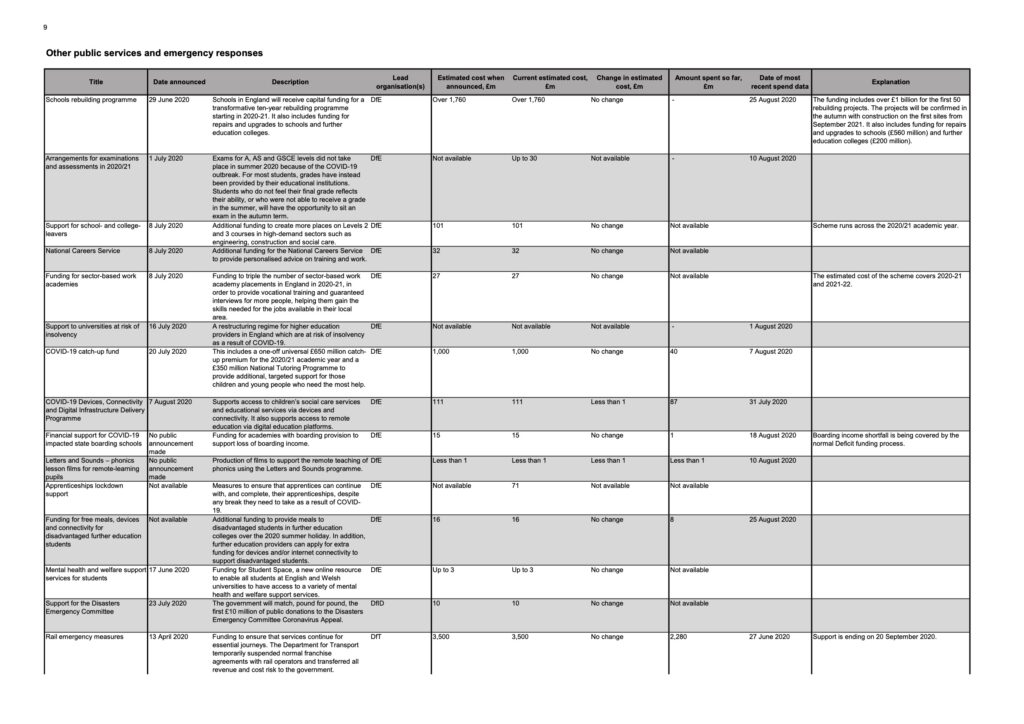21 September 2020: The National Audit Office COVID-19 cost tracker provides critically important data about the current £210bn cost of the pandemic but disappoints in the way it presents this financial information.

The National Audit Office (NAO) has published a COVID-19 cost tracker comprising details of over 190 different measures announced by government departments in response to the coronavirus pandemic. This is an extremely valuable exercise in seeking to track the huge amounts being spent in the absence of any centrally collated financial tracking by the Government itself.
As of 7 August 2020, the NAO has identified around £210bn of measures, of which around £70bn has been confirmed as having been incurred. A number of the measures are unquantified and many of the numbers are broad-brush estimates that may individually turn out to be significantly different.
The largest items in the list are the £47bn estimated cost of the coronavirus job retention scheme (CJRS), £16bn in bounce back loans, £15bn for the self-employed income support scheme, £15bn on personal protection equipment, £13bn for the devolved administrations under the Barnett formula, £12bn on business grants, £12bn in waived business rates and £10bn on testing and tracing. Together these eight items amount to around two-thirds of the total.
Unfortunately, the NAO has provided this data as a 22-page table with very limited summarisation or categorisation, making it extremely challenging to analyse the information which it provides. For example, costs are not analysed between tax cuts, public spending or lending activities, making it difficult to work out their impact on the public finances.
Admittedly, the NAO has had to put this information together itself, which it shouldn’t have had to do. A well-run central government finance function would have already collated and analysed this information, allowing the auditors to concentrate on providing assurance on the data through their audit work.
Despite those criticisms, the NAO COVID-19 cost tracker will help improve the quality of our understanding of the financial impact of the pandemic and will no doubt inform the next iteration of the Office for Budget Responsibility (OBR) coronavirus analysis.